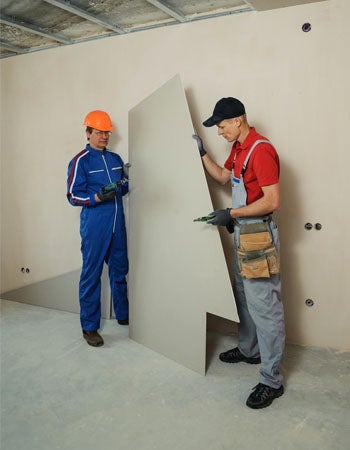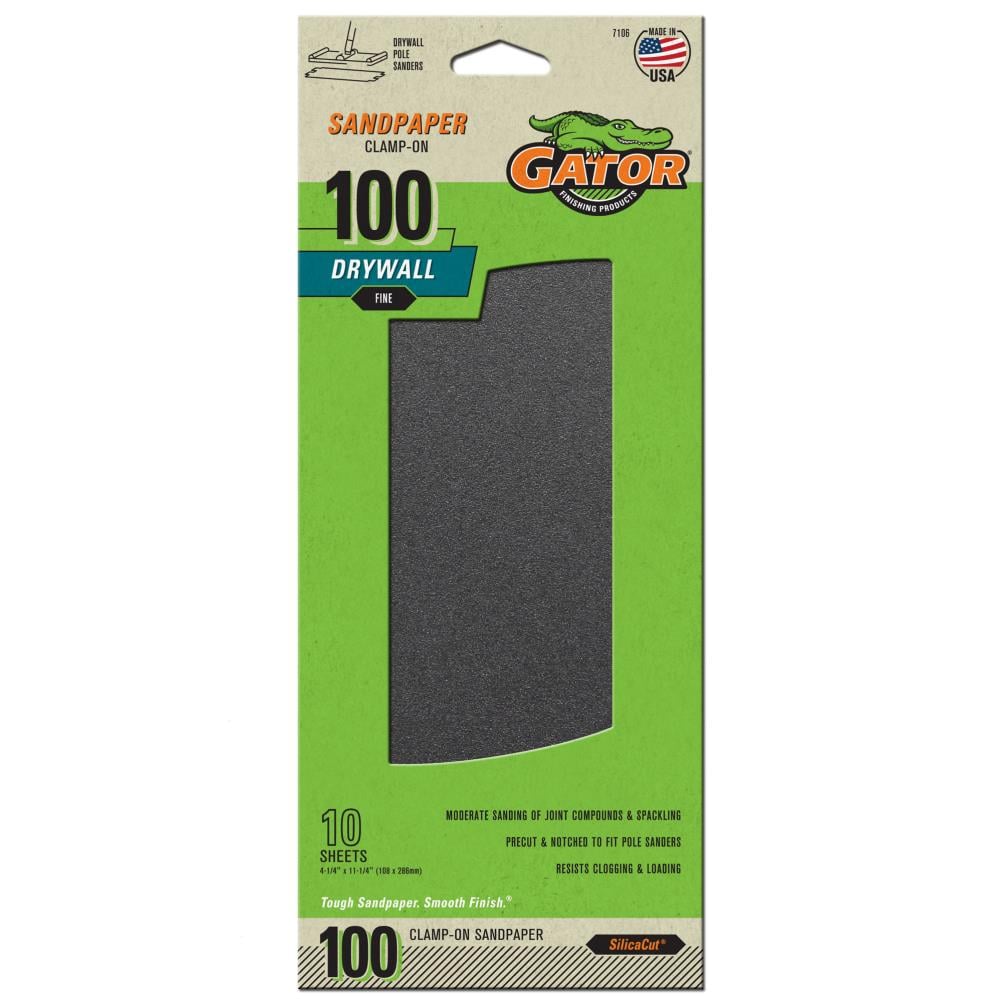
Sanding sponges or blocks can be used to sand drywall. The sanding sponge is versatile and can be used for many different tasks. There are many excellent options. These range from an environmentally responsible sanding blocks to a dropless sponge.
Sanding blocks and sponges are available in various grits. You can choose from coarse, medium, or fine grades depending on what kind of work you need. You'll save money long-term if you buy many of them.
Get a pencil, and mark the areas to be sanded. This will help to identify problem areas and then you can use your sanding equipment to fix them. A folded sheet of sanding papers can be used to sand corners. Or you can use a knife or a knife for sanding depressions and grooves. Once you've done this, you can fill in the gouges or depressions.
If you need to work with high ceilings, a pole sander will be necessary. You can however use a hand-sander. When using a hand-sander, it is important to not put too much pressure on its blade. Protective gear such as goggles and a cap is your best choice.

Drywall sanding can make it messy. Dust can accumulate on nearby surfaces. After you are done, vacuum the area. You can also put up a drop cloth to protect your carpet and furniture from the dust.
Sanding drywall holes requires a different type of sandpaper to patch a joint. Sanding the edges or depressions of a groove is easier than sanding all the holes. Before sanding, be sure that the drywall compound has dried.
To avoid damaging the paper side of drywall, it is important that corners are sanded as close to the corners possible. Don't sand in a straight line, though, or you'll leave a depression. Instead, use a sponge to sand in a circular motion along the edges of the joints.
While you sand, you can also remove nicks from your drywall knife and tape. Some of these can be difficult to remove with the help of a sponge and sandingblock.
Unlike traditional sandpaper, a sanding sponge is much more durable and easier to use. The sponge can be used to scrub up any sanded debris but is firm enough to reach those hard-to get places.

A sanding block can be used to sand a rough area. It will have a fine-grit sandpaper attached. This makes it easier for you to work in the area. It also gives you a smoother end result.
Sanding sponges can be an affordable alternative to traditional sandpaper. They can also save you time. If you are short on money and don't want to spend a lot of money on sanding blocks, a sanding pad is a good alternative.
FAQ
How important is it to get pre-approved for a loan?
It is important to get preapproved for a mortgage because you will know how much you can borrow. It can also help you determine your eligibility for a particular loan program.
What can I do to save money on my home's renovation?
You can save money by doing most of the work yourself. Reduce the number and frequency of people you hire for the renovation. You can also find ways to reduce costs for materials during the renovation.
Is it better to finish floors or walls first?
It is the best way to begin any project. It is essential to consider how the space will be used, who will use it, and why. This will help decide if you want flooring or wallcoverings.
You might choose to first install flooring if your goal is to create an open concept kitchen/living area. You can also choose wall coverings if you want to make the room private.
Are permits required to renovate my home?
Yes. You will need permits to start any home renovation project. A building permit and plumbing permit are required in most cases. A zoning license may also be needed depending on the type or construction you are doing.
Can I do the whole renovation myself?
Do it yourself - you'll save time and money.
It doesn't matter how much you love DIY, there are times when you simply cannot do it yourself. You may not be able to control all the variables.
For example, if you live in an old home, you might find that the wiring is outdated and you would need to hire a qualified electrician to make sure that your electrical system is safe and reliable.
It is possible that your renovations might cause structural damage.
You might not have all the necessary tools to do the job correctly. For example, if your goal is to install a new sink in your kitchen, you will need to purchase a plumber’s snake, which is designed to clear blocked pipes.
There are plumbing codes that will require you to hire a licensed plumber for your project.
It is important to understand your capabilities before embarking on such a large task.
Ask for assistance from family and friends who have completed similar tasks before if you are uncertain.
They can help you determine the right steps and where you can find out more.
Statistics
- They'll usually lend up to 90% of your home's "as-completed" value, but no more than $424,100 in most locales or $636,150 in high-cost areas. (kiplinger.com)
- It is advisable, however, to have a contingency of 10–20 per cent to allow for the unexpected expenses that can arise when renovating older homes. (realhomes.com)
- ‘The potential added value of a loft conversion, which could create an extra bedroom and ensuite, could be as much as 20 per cent and 15 per cent for a garage conversion.' (realhomes.com)
- The average fixed rate for a home-equity loan was recently 5.27%, and the average variable rate for a HELOC was 5.49%, according to Bankrate.com. (kiplinger.com)
- Most lenders will lend you up to 75% or 80% of the appraised value of your home, but some will go higher. (kiplinger.com)
External Links
How To
Five Things You Need to Know Before You Begin Your Home Renovation
-
Is this something you really want? If you are planning to do major home improvements like renovating your bathroom or building new houses, you will likely need help. It's possible to feel overwhelmed by such a large project. You could lose a lot of time and money and not reap any real benefits. Instead, why not hire someone who knows what they're doing to help out? They will help you save time and stress and still give you a beautiful home to live in.
-
How much should a project cost? This may seem obvious but it could make things worse if you spend too much on your renovation project. Because you will likely end up paying most of the costs back at the conclusion of the day. Keep your budget in mind. Without it, you may end up paying a lot but not getting anything back.
-
Do I hire professionals or do I need to DIY? - Although there's no right answer, we would recommend hiring professionals if you have the means. After all, they'll be able to give you advice on how best to proceed with your project. They will install the plumbing correctly, take care of safety, and offer a guarantee after they have finished their work. On the flip side, DIY projects usually involve lots of trial and error, which means you'll have to learn a lot of lessons the hard way. Additionally, you will have to deal all manner of problems that can arise along the way.
-
How much can I afford it? - Do not underestimate how expensive a renovation project will cost. Even if you think you can manage it on your own, you might find that you need to borrow money from friends and family just to cover the bills. If you are planning on selling your existing property soon after finishing the renovations, it is important to include the cost of selling it in your calculations.
-
Where should I begin? There are no right or wrong places to begin when choosing where to start. But, we recommend you pick something you love to work on. You'll feel more motivated to work and less likely to procrastinate. Also, try to avoid places that require a lot of maintenance. If your living area is constantly cluttered with dust and dirt, you should not attempt to redesign it.